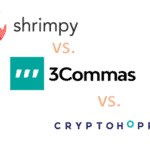Key Takeaways
- George Jarkesy Jr. was charged by the SEC with violating federal securities law.
- The case was heard by an administrative law judge.
- The defendant’s constitutional right to a jury trial may have been infringed by in-house judges.
George Jarkesy Jr. was charged in the year 2013. The severe charge against him was a result of violating federal securities law by misrepresenting the assets of his two hedge funds. On Wednesday, a Federal Appeals Court in the United States ruled that the proceedings were unlawful and wrong.
According to the 5th U.S. Circuit Court of Appeals, the Securities and Exchange Commission’s in-house judges violated the United States Constitution. This breach occurred as a result of denying fraud defendants the right to a jury trial and generally operating without proper congressional oversight.
“In sum, we agree with Petitioners that the SEC proceedings below were unconstitutional. The SEC’s judgment should be vacated for at least two reasons: (1) Petitioners were deprived of their Seventh Amendment right to a civil jury; and (2) Congress unconstitutionally delegated legislative power to the SEC by failing to give the SEC an intelligible principle by which to exercise the delegated power,” the decision said.
An appeals court judge has ruled that judges are not immune from dismissal, contrary to the majority judgment. The decision comes just two days after the United States Supreme Court decided to hear an appeal of a Fifth Circuit verdict against the regulator in another lawsuit challenging the agency’s in-house tribunal.
The court ruled 2-1 in favor of George Jarkesy Jr. and investment adviser Patriot28 LLC. The Court reversed an administrative law judge’s finding of securities fraud. The majority reasoned that the defendants had a right to a jury trial. The regulator acted to protect investors and maintain public rights under securities laws.
The majority also concluded that judges, known as administrative law judges, lack constitutional jurisdiction because Congress did not define when disputes should be resolved internally rather than in court.
The majority, according to Judge Eugene Davis, misapplied Supreme Court decisions establishing public and private rights. He equated the regulator’s ability to choose its site to prosecutors’ capacity to choose which charges to pursue. Davis also criticized the majority’s wrong and illogical judgment and that the judges are unconstitutionally exempt from firing.
On Monday, the United States Supreme Court agreed to hear the Securities and Exchange Commission’s bid to block a challenge to the constitutionality of its in-house tribunal brought by a Texas accountant who was punished by the agency after the agency criticized her audits of publicly traded companies.









